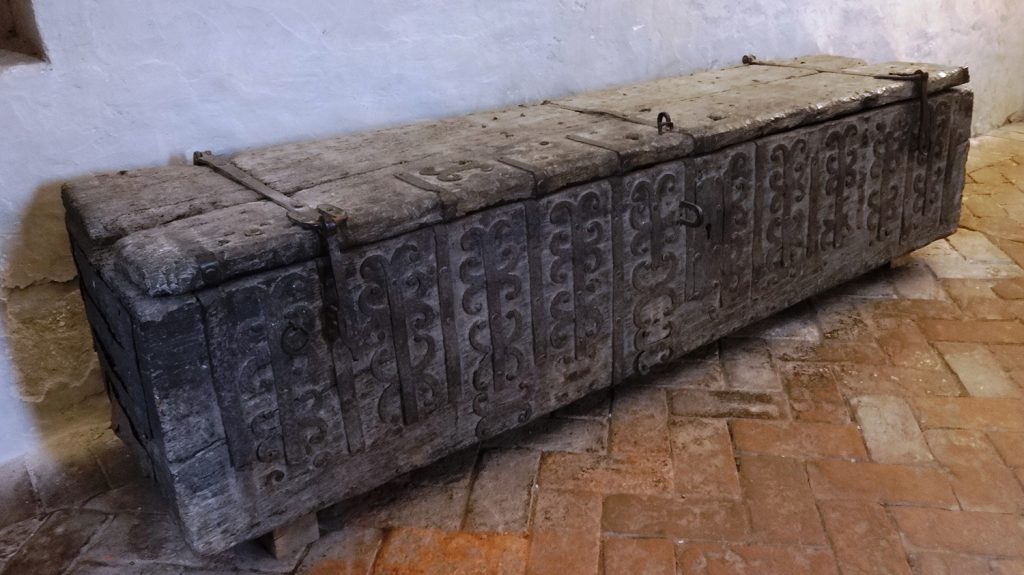Johann Tetzel, the Dominican monk whose sale of indulgences to fast-track souls through Purgatory sparked off the Reformation, made his own Purgatorial debut today in 1519. Tetzel was a salesman who raised large amounts of money (in his coffer, above) for the Pope to build the new church of St Peter’s in Rome. His sales pitch was that you could have your dead relatives released from the pains of Purgatory by giving money to the Church. His Protestant opponents accused him of using a jingle to sell the idea:
As soon as the coin in the coffer rings,
The soul from Purgatory springs!
Nicholas of Cusa, the 15th century thinker whose mindset was somewhere between the medieval world and the Renaissance, and whose writing encompassed theology, mathematics, philosophy, mysticism, law and astronomy, died today in 1464. He was one of the first people to suggest counting the human pulse (against the dripping of a water clock) as part of making a medical diagnosis. He proposed that there was intelligent life on other planets, and that the universe might be infinite. He wrote positively about other religions, and was part of a delegation sent by ship to Constantinople seeking to bring the Eastern and Western Churches back together. During the voyage, he had a mystical experience which led him to write his book, On Learned Ignorance, which argues that God is beyond rationality and naming.
It is the feast of St Clare of Assisi, one of the first followers of St Francis. Born into a rich family, she heard Francis preach in 2011, and on Palm Sunday the following year left her family home at night and dedicated her life to the Franciscan way.
Augustus Montague Toplady, famous for writing the hymn, ‘Rock of ages’, and also famous for his long-running theological feud with John Wesley, died today in 1778. Toplady is also one of the first Christian writers to discuss the ethical treatment of animals. In essays and speeches he wrote and spoke about the wisdom of elephants, goats, ants and spiders, and his hope that the whole of creation would return to the paradise enjoyed by Adam and Eve.
‘Without hesitation or limitation I deliver it as my steadfast belief that all wanton exercise of power over, and all unnecessary cruelty to the brute creation is truly and properly criminal… I firmly believe that beasts have souls; souls, truly and properly so called: which, if true, entitles them not only to all due tenderness, but even to a higher degree of respect than is usually shewn them.’ Augustus Montague Toplady, speech on ‘Cruelty to the Brute Creation’
John Henry Newman, who started his clerical career as a lowly evangelical curate and ended it as a Catholic Cardinal, died today in 1890. In mid career, he was the lead controversialist of the Oxford Movement, agitating for more Catholicism in the Church of England, but in 1845 he quit the Church and became a Roman Catholic. In 2008, his grave was dug up in the hope that it might yield some relics, but Newman’s remains had inexplicably disappeared.
Image: Assenmacher
